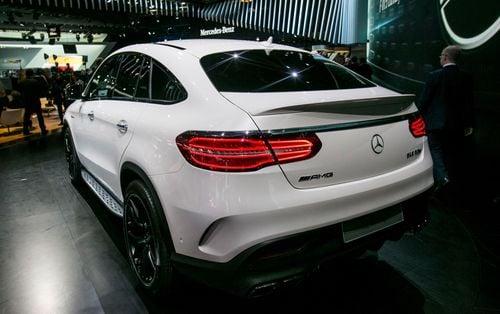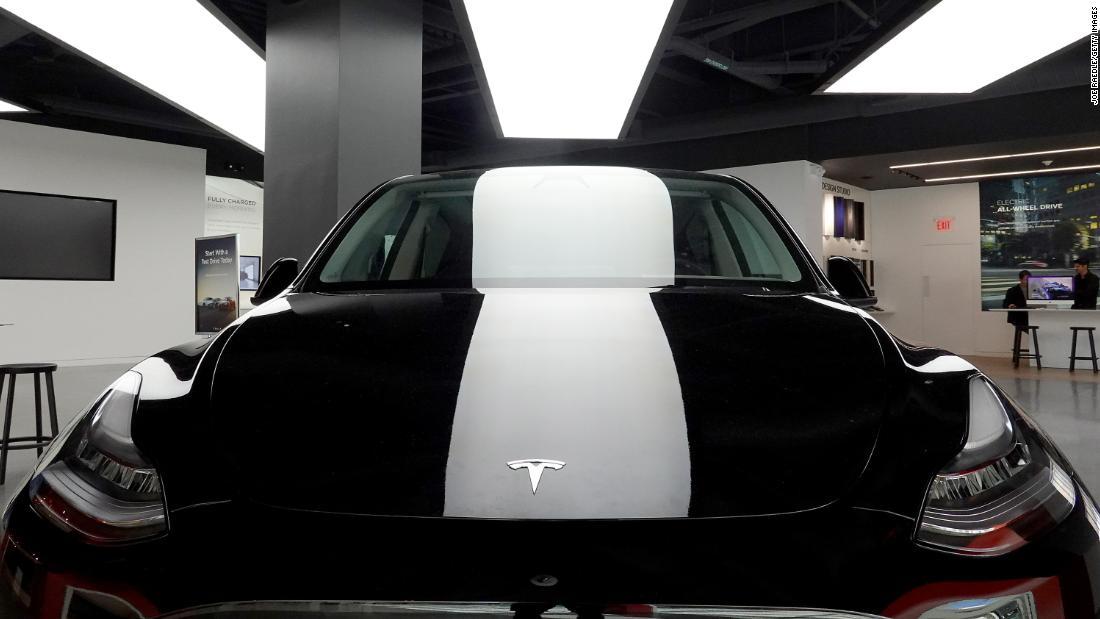
Tesla recently issued four vehicle recalls in a 12-day span. But Tesla owners did not have to rush their cars to the nearest dealership to fix the safety issues, which ranged from its “full self-driving” driver assist function rolling through stop signs, to some windshields not properly defrosting.
Instead, Tesla pushed out an updated version of its software — much like how companies like Apple push out the most recent versions of their operating systems to an iPhone. It’s a growing trend in the auto industry. And it’s one that experts say has huge potential upsides but that is not without its own dangers.
A single traditional recall could financially cripple any automaker. Automakers must pay for the parts and labor to make fixes. General Motors, for instance, spent $4.1 billion on recalls in 2015 for issues including faulty ignition switches.
But Tesla managed its recalls without many of the major expenses associated with traditional recalls. Tesla’s approach benefited consumers too, who typically must take their vehicle to be serviced.
Tesla has fixed its most recent safety recalls with over-the-air software updates, which refresh software wirelessly like a smartphone app update, making them less burdensome for the automaker and consumers. The traditional auto industry sees over-the-air updates as a convenient way to address some recalls, but Tesla has been the most aggressive in utilizing them.
Cars, especially electric vehicles, increasingly rely on computers to work so software updates are likely to be increasingly relevant to them.
“Cars now are so much more software than hardware. That’s why a chip shortage freezes the industry,” Don Slavik, an attorney focused on motor vehicle product liability, told CNN Business.
In recalls in which cars need to be taken in for service, many drivers never have their vehicle fixed, leaving unsafe cars and trucks on the roads.
About 75% of recalls are remedied, according to Sean Kane, founder of the research organization Safety Research & Strategies.
“The rates drop as cars age, so there’s upside to over-the-air software updates,” Kane said.
In contrast, many Tesla updates arrive overnight while cars are parked at their owners’ homes. There’s no hassle of taking a vehicle to be serviced and completion rates are high. Tesla reported last year that 100% of its vehicles with an unexpected emergency braking issue had been fixed within two months of notifying owners. An over-the-air software update was available to address the issue. For comparison, a recall due to seat belts not securely attaching to some Model S vehicles, which required owners to visit a Tesla service center, had only been remedied on 59% of vehicles six months later.
“Increasing recall completion rates remains a priority for our members and we continue to explore new approaches for modernizing the process and improving safety and convenience for consumers,” John Bozzella, CEO of the Alliance for Automotive Innovation, which represents major automakers outside of Tesla, told CNN Business.
Automakers Mercedes-Benz and General Motors have issued over-the-air updates in the past and both companies say they will increasingly consider using them in the future where applicable and feasible.

Mercedes-Benz last year addressed a recall through an over-the-air update to fix a flaw in its system that could prevent people from calling emergency services through some of its vehicles. Mercedes-Benz spokeswoman Anne McGregor said that the company is encouraged by the potential of the technology.
General Motors issued an over-the-air software update in 2020 to limit speeds of the Chevrolet Corvette when the hood isn’t completely closed to prevent it from flipping open and increasing the risk of a crash. It was received by 94% of vehicles 16 months after the recall was initiated.
Next year it’s rolling out a new software platform in its vehicles. GM spokesman Chris Bonelli there will be even more features and frequent updates.
But while the ease of implementing over-the-air recalls makes them attractive, there are drawbacks, too.
The ease of correcting a car’s software may encourage automakers to ship features that are rough around the edges and may not have received adequate testing, experts say.
Last October Tesla recalled its “full self-driving” software because the automatic emergency braking function was activating unexpectedly, which could increase the risk of rear-end collision. It again recalled its “full self-driving” software in February, as it was programmed to slowly roll through stop signs in some cases.
“We’re getting into the area where humans are used as beta testers and guinea pigs, and it’s not somewhere we want to be,” Michael Brooks, chief counsel at the Center for Auto Safety, told CNN Business.
Tesla said in the recalls that it was not aware of any related crashes or injuries, and the company did not respond to a request for comment.
Brooks pointed to Tesla’s safety recall in February of its Boombox feature, which allows people to play sounds of their choosing through the vehicle’s external speaker, which is typically used for its pedestrian warning system. US motor vehicle regulations require hybrid and electric vehicles to emit a low sound at low speeds, because they’re so naturally quiet it can be unsafe for pedestrians and cyclists. Tesla said in its Boombox recall that the feature could interfere with the effectiveness of the pedestrian warning system.
“The fun police made us do it (sigh),” Musk tweeted after the recall.
Tesla said it will release an over-the-air software update to disable the Boombox function while the car is in drive, neutral or reverse mode.
Most of Tesla’s 12 recalls in 2021 required a Tesla technician to make a hands-on fix, such as issues with a seatbelt or airbag. Auto recall experts expect software updates to become much more common. They’re especially appealing as an alternative to fixing a hardware or mechanical issue.
Mercedes-Benz in 2017 tweaked software on the 2015 and 2016 C63 AMG high performance coupe and sedan to prevent a part from snapping during hard acceleration on wet roads. Chrysler updated software on some Ram pickups in 2018 to prevent them from unintentionally rolling away. Ford in 2018 updated software on its Focus sedan to prevent engine stalls.
Kane cautioned that a downside of software fixes is it may lead to automakers making a short-term software fix and pushing underlying issues down the road, including when a vehicle is no longer under warranty.
The-CNN-Wire™ & © 2022 Cable News Network, Inc., a WarnerMedia Company. All rights reserved.